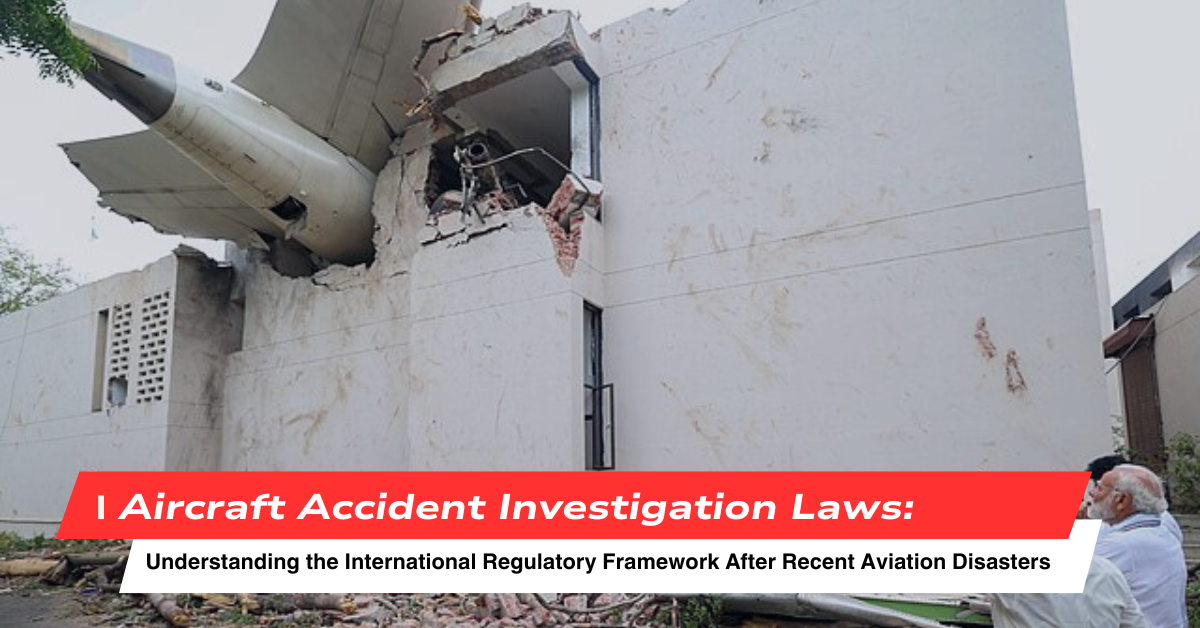Understanding the Nature of Offences under the POCSO Act, 2012
In Part 1 of this series, we delved into the introduction of the Protection of Children from Sexual Offences Act, 2012 (POCSO Act), exploring its background, purpose, definition of a child, constitutional reference, and alignment with international obligations. Building on that foundation, Part 2 will focus on the nature of offences under the POCSO Act, specifically examining the various types of sexual assault and the legal provisions that address them.
Penetrative Sexual Assault
Section 3 of the POCSO Act defines penetrative sexual assault, laying down the punishment for the offense.
Section 3 of the POCSO Act, 2012
“A person is said to commit ‘penetrative sexual assault’ if he penetrates his penis, to any extent, into the vagina, mouth, urethra or anus of a child or makes the child to do the same with another person or manipulates any part of the body of the child so as to cause penetration into the vagina, mouth, urethra or anus of the child or makes the child to do the same with another person or applies his mouth to a child’s penis, vagina, anus or urethra or makes the child to do the same to another person or any other act with sexual intent which involves physical contact without penetration is said to commit sexual assault.”
Aggravated Penetrative Sexual Assault
Section 5 of the POCSO Act lays down the cases in which penetrative sexual assault amounts to aggravated penetrative sexual assault. The section is comprehensive and includes various scenarios.
Section 5 of the POCSO Act, 2012: Aggravated penetrative sexual assault
(a) Whoever, being a police officer, commits penetrative sexual assault on a child —
- within the limits of the police station or premises at which he is appointed; or
- in the premises of any station house, whether or not situated in the police station, to which he is appointed; or
- in the course of his duties or otherwise; or
- where he is known as, or identified as, a police officer; or
(b) whoever being a member of the armed forces or security forces commits penetrative sexual assault on a child–
- within the limits of the area to which the person is deployed; or
- in any areas under the command of the forces or armed forces; or
- in the course of his duties or otherwise; or
- where the said person is known or identified as a member of the security or armed forces; or
(c) whoever being a public servant commits penetrative sexual assault on a child; or
(d) whoever being on the management or on the staff of a jail, remand home, protection home, observation home, or other place of custody or care and protection established by or under any law for the time being in force, commits penetrative sexual assault on a child, being inmate of such jail, remand home, protection home, observation home, or other place of custody or care and protection; or
(e) whoever being on the management or staff of a hospital, whether Government or private, commits penetrative sexual assault on a child in that hospital; or
(f) whoever being on the management or staff of an educational institution or religious institution, commits penetrative sexual assault on a child in that institution; or
(g) whoever commits gang penetrative sexual assault on a child.
Explanation.– When a child is subjected to sexual assault by one or more persons of a group in furtherance of their common intention, each of such persons shall be deemed to have committed gang penetrative sexual assault within the meaning of this clause and each of such person shall be liable for that act in the same manner as if it were done by him alone; or
(h) whoever commits penetrative sexual assault on a child using deadly weapons, fire, heated substance or corrosive substance; or
(i) whoever commits penetrative sexual assault causing grievous hurt or causing bodily harm and injury or injury to the sexual organs of the child; or
(j) whoever commits penetrative sexual assault on a child, which–
- physically incapacitates the child or causes the child to become mentally ill as defined under clause (l) of section 2 of the Mental Health Act, 1987 (14 of 1987) or causes impairment of any kind so as to render the child unable to perform regular tasks, temporarily or permanently;
- in the case of female child, makes the child pregnant as a consequence of sexual assault;
- inflicts the child with Human Immunodeficiency Virus or any other life threatening disease or Infection which may either temporarily or permanently impair the child by rendering him physically incapacitated, or mentally ill to perform regular tasks;
- (iv) causes death of the child; or
(k) whoever, taking advantage of a child’s mental or physical disability, commits penetrative sexual assault on the child; or
(l) whoever commits penetrative sexual assault on the child more than once or repeatedly; or
(m) whoever commits penetrative sexual assault on a child below twelve years; or
(n) whoever being a relative of the child through blood or adoption or marriage or guardianship or in foster care or having a domestic relationship with a parent of the child or who is living in the same or shared household with the child, commits penetrative sexual assault on such child; or
(o) whoever being, in the ownership, or management, or staff, of any institution providing services to the child, commits penetrative sexual assault on the child; or
(p) whoever being in a position of trust or authority of a child commits penetrative sexual assault on the child in an institution or home of the child or anywhere else; or
(q) whoever commits penetrative sexual assault on a child knowing the child is pregnant; or
(r) whoever commits penetrative sexual assault on a child and attempts to murder the child; or
(s) whoever commits penetrative sexual assault on a child in the course of communal or sectarian violence or during any natural calamity or in similar situations; or
(t) whoever commits penetrative sexual assault on a child and who has been previously convicted of having committed any offence under this Act or any sexual offence punishable under any other law for the time being in force; or
(u) whoever commits penetrative sexual assault on a child and makes the child to strip or parade naked in public, is said to commit aggravated penetrative sexual assault.
Explanation
This section covers a wide range of scenarios where penetrative sexual assault is considered aggravated. It includes situations involving police officers, members of the armed forces, public servants, staff of jails, hospitals, educational institutions, and more. The section also addresses gang penetrative sexual assault, use of deadly weapons, causing grievous hurt, and other specific circumstances that elevate the crime to an aggravated level.
Failure to Report and Record Cases
The POCSO Act also addresses the failure to report and record cases of sexual assault against children, holding accountable those who neglect their duty to report such offenses. The Protection of Children from Sexual Offences Act, 2012 (POCSO Act) addresses the failure to report and record cases of sexual assault against children by imposing specific obligations and penalties on individuals who neglect their duty to report such offenses.
Obligation to Report under POCSO Act
Section 19 of the POCSO Act mandates that any person who has knowledge or apprehension that a child has been sexually abused must report the offense to the police or the Special Juvenile Police Unit. This includes not only family members and guardians but also professionals such as teachers, doctors, and hospital staff who may come across such cases in their line of work.
Section 19(1) of the POCSO Act, 2012
“Notwithstanding anything contained in the Code of Criminal Procedure, 1973, any person (including the child), who has apprehension that an offense under this Act is likely to be committed or has knowledge that such an offense has been committed, he shall provide such information to, — (a) the Special Juvenile Police Unit; or (b) the local police.”
Penalty for Failure to Report
Section 21 of the POCSO Act prescribes penalties for those who fail to report an offense or fail to record such an offense. This includes both individuals and institutions.
Section 21(1) of the POCSO Act, 2012
Where a person fails to report the commission of an offense under sub-section (1) of section 19 or fails to record such offense under sub-section (2) of that section shall be punished with imprisonment of either description which may extend to six months or with fine or with both.”
Section 21(2) of the POCSO Act, 2012
“Where a person being in-charge of any company or an institution (by whatever name called) fails to report the commission of an offense under sub-section (1) of section 19 in respect of a subordinate under his control, shall be punished with imprisonment for a term which may extend to one year and with fine.”
Explanation
These provisions ensure that individuals and institutions are legally obligated to report cases of child sexual abuse. By imposing penalties for failure to report or record such offenses, the Act holds accountable those who neglect their duty, thereby encouraging prompt reporting and ensuring that offenders are brought to justice.
The POCSO Act’s approach to mandatory reporting reflects a commitment to child protection, recognizing that the failure to report and record offenses can have serious consequences for the child’s well-being and safety. It emphasizes collective responsibility in safeguarding children’s rights and welfare.
Offences under Other Acts
This Act is a specialized legislation designed to address sexual offenses against children. However, it is not the only legal framework that deals with child sexual abuse cases in India. Several other acts and provisions overlap with the POCSO Act, each addressing different aspects of child protection and criminal procedure. Here’s an elaboration on how these acts interact and overlap:
1. Code of Criminal Procedure, 1973 (CrPC)
The CrPC lays down the procedure for the investigation, inquiry, and trial of criminal offences in India. While the POCSO Act has specific provisions for the trial of child sexual abuse cases, the general principles of criminal procedure under the CrPC still apply. For example, the manner of recording evidence, the role of the public prosecutor, and the process of appeal are governed by the CrPC.
2. Indian Penal Code, 1860 (IPC)
The IPC defines various criminal offences, including sexual offences. Before the enactment of the POCSO Act, child sexual abuse cases were dealt with under the IPC. Even now, certain provisions of the IPC may apply in conjunction with the POCSO Act, especially when the offence involves additional criminal acts such as murder or kidnapping.
Section 42 of the POCSO Act, 2012: This section ensures that if an act constitutes an offense under both the POCSO Act and the IPC, the offender will be liable for the punishment that is greater in degree.
3. Juvenile Justice (Care and Protection of Children) Act
The Juvenile Justice Act focuses on the care, protection, and rehabilitation of children in conflict with the law or in need of care and protection. It may interact with the POCSO Act in cases where the offender is a juvenile or when the child victim requires care and protection as defined under this Act.
4. Information Technology Act, 2000
The Information Technology Act deals with offenses related to electronic communication and data. It may overlap with the POCSO Act in cases involving online child sexual exploitation, cyberbullying, or the sharing of explicit content involving minors.
Section 67B of the Information Technology Act, 2000: This section specifically deals with the punishment for publishing or transmitting material depicting children in sexually explicit acts in electronic form.
The interaction between the POCSO Act and other legal frameworks like the CrPC, IPC, Juvenile Justice Act, and Information Technology Act reflects the complexity of addressing child sexual abuse cases. While the Act provides specialized provisions for dealing with such offenses, it operates within a broader legal landscape that encompasses various aspects of criminal law, child protection, and technology. This multifaceted approach ensures a comprehensive legal response to child sexual abuse, but it also requires careful navigation to harmonize the different laws and ensure that justice is effectively served.
Conclusion
The nature of offenses under this Act is comprehensive and multifaceted. From defining penetrative sexual assault to specifying what constitutes aggravated penetrative sexual assault, the Act provides a robust framework to address and punish sexual offenses against children. The Act’s alignment with other legal provisions ensures a cohesive approach to child protection.
References and Provisions of Law Referred
- Protection of Children from Sexual Offences Act, 2012
- Section 3: Penetrative sexual assault
- Section 5: Aggravated penetrative sexual assault
- Section 19: Obligation to report
- Section 21: Penalty for failure to report or record offences
- Indian Penal Code, 1860
- Code of Criminal Procedure, 1973
- Juvenile Justice Act
- Information Technology Act, 2000
This article provides a detailed examination of the nature of offenses under the POCSO Act, 2012, highlighting the legal provisions and their implications. It serves as a continuation of our comprehensive exploration of the Act, contributing to a deeper understanding of India’s legal landscape in child protection.













